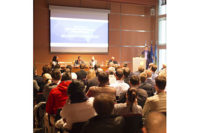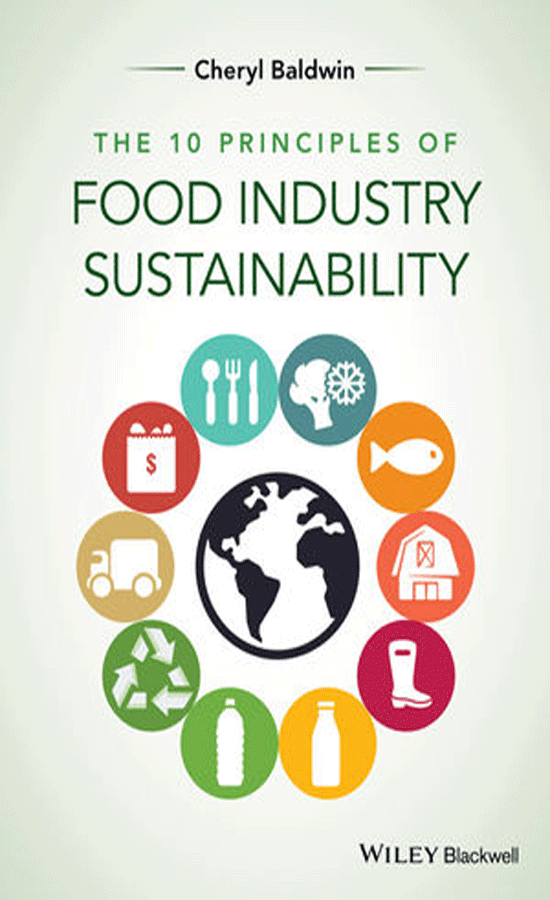Establishing sustainability's corporate, local relevancy

Engaging in sustainability initiatives that are relevant at both the corporate and local levels of a company can be a challenge. For example, while there may be some similarities, the priorities and influence of a corporate manager will vary significantly from that of a local manager. Asking employees to participate in efforts they see as less important or irrelevant to their regular duties could be a recipe for failure.
So how can a company implement sustainability initiatives that align with corporate goals and strategies, yet remain meaningful at local levels? Moreover, how can a company ensure each employee, whether corporate or local, feels he or she contributes to the organization’s long-term sustainability? A few key elements to ensuring global relevancy with your sustainability initiatives include:
- Establishing a sustainability framework;
- Fostering an environment that promotes flexibility; and
- Providing structured opportunities to share best practices and success stories about corporate and local-level sustainability efforts.
Establish a framework
For a company to find relevancy in the sustainability efforts at all levels of its business, a framework for implementing sustainability initiatives must be established and communicated. It should align with a company’s business strategy and sustainability goals and be a reflection of all aspects of a business. For those in the food-processing industry this can include food safety and animal well-being, product research and development, workplace safety and environmental protection, supply-chain engagement, and community support and hunger relief.
Additionally, a sustainability framework should be designed to drive the continual improvement of your company’s social, economic, and environmental performance. Sometimes your organization may find it necessary to provide additional guidance, support and financial backing. This is particularly critical when local operations are being charged with helping the organization meet sustainability goals that may require new equipment, technologies or other process improvements.
Foster an environment of flexibility
I’ve mentioned previously that a “one size fits all” approach to sustainability does not exist. This statement holds true for the corporate and local levels of a company. Programs and initiatives that are meaningful for a corporate office may not be seen as such at a local level. If, however, corporate and local levels are given the authority and flexibility to adopt and implement initiatives and goals that align with a company’s sustainability framework but are customized to address a specific areas of interest, synergies will exist.
At Tyson Foods, our “Core Values” are our sustainability framework. These values are recognized and understood by all of our team members and define who we are, what we do, and how we do it. Fulfilling the commitments of our core values at the corporate and local level requires flexibility and creativity. For example, one element of our core values outlines our commitment to creating value in our communities and another requires us to serve as stewards of the environment entrusted to us. Below are examples of how we upheld these values at the corporate and local levels.
- During fiscal year 2013, Tyson Foods’ combined cash and product donations contributed more than $9.2 million to the communities we serve as well as various hunger-relief efforts. Additionally, from October 2010 to March 2014, Tyson Foods’ corporate offices recycled more than 3.8 million pounds of business records through its record retention program.
- From 2011 to 2013, two of Tyson Foods’ poultry-processing plants donated more than 6,900 tons of old corrugated containers to their local children’s center. The children’s center baled and recycled this tonnage and collected the recycling revenue. The revenue collected by the center was used for capital improvement projects such as new paint and flooring in classrooms, a stage for preschool graduations and talent shows, adult awards banquets and other activities.
Share, share, share
No one knows your company better than you and, more than likely, there are countless examples of how sustainability is implemented at your corporate and local levels. Establish formal channels to share best practices and to look to one another for ideas, lessons learned and advice on implementing sustainability efforts. This process will also help ensure corporate and local levels feel connected and engaged and that they are moving ahead in a common direction. Additionally, these formalized channels present an excellent opportunity for your organization to look ahead at potential challenges and collaborate to ensure your efforts continue to contribute to the long-term sustainability of your organization, society and the environment.
With the a little planning, the right framework and the authority to be creative, the sustainability efforts of your corporate and local levels can be better coordinated and aligned. Individuals and teams will be able to see where they are contributing and will know their efforts are meaningful and have an impact. This team approach and alignment will clearly demonstrate sustainability is embedded in the day-to-day operations of your organization.
Looking for a reprint of this article?
From high-res PDFs to custom plaques, order your copy today!







